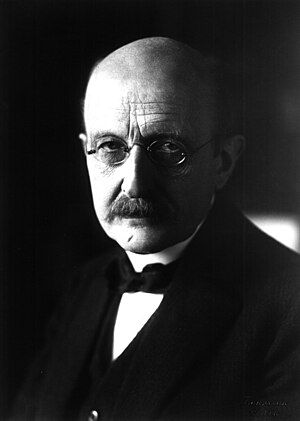Max Karl Ernst Ludwig Planck (April 23, 1858 – October 4, 1947) was a German physicist who is regarded as the founder of the quantum theory, for which he received the Nobel Prize in Physics in 1918.
Planck was very tolerant towards alternative views and religions, and so was discontented with the Nazi church organizations’ demands for unquestioning belief. In a lecture on 1937 entitled Religion und Naturwissenschaft he suggested the importance of these symbols and rituals related directly with a believer’s ability to worship god, but that one must be mindful that the symbols provide an imperfect illustration of divinity. He criticized atheism for being focused on the derision of such symbols, while at the same time warned of the over-estimation of the importance of such symbols by believers.
Planck regarded the scientist as a man of imagination and faith, “faith” interpreted as being similar to “having a working hypothesis“. For example the causality principle isn’t true or false, it is an act of faith. Thereby Planck may have indicated a view that points toward Imre Lakatos’ research programs process descriptions, where falsification is mostly tolerable, in faith of its future removal
Some of Planck’s books are listed below:
See Below of some of Max Planck’s noted Quotes (Wisdom):
“All matter originates and exists only by virtue of a force… We must assume behind this force the existence of a conscious and intelligent Mind. This Mind is the matrix of all matter.”
“Science cannot solve the ultimate mystery of nature. And that is because, in the last analysis, we ourselves are a part of the mystery that we are trying to solve.”
“It is not the possession of truth, but the success which attends the seeking after it, that enriches the seeker and brings happiness to him.”
“Whence come I and whither go I? That is the great unfathomable question, the same for every one of us. Science has no answer to it.”
Wikipedia contributors. “Max Planck.” Wikipedia, The Free Encyclopedia. Wikipedia, The Free Encyclopedia, 18 Feb. 2011. Web. 23 Feb. 2011.
Disclaimer: This page contains affiliate links. If you choose to make a purchase after clicking a link, I may receive a commission at no additional cost to you. Thank you for your support!


Leave a Reply
Want to join the discussion?Feel free to contribute!